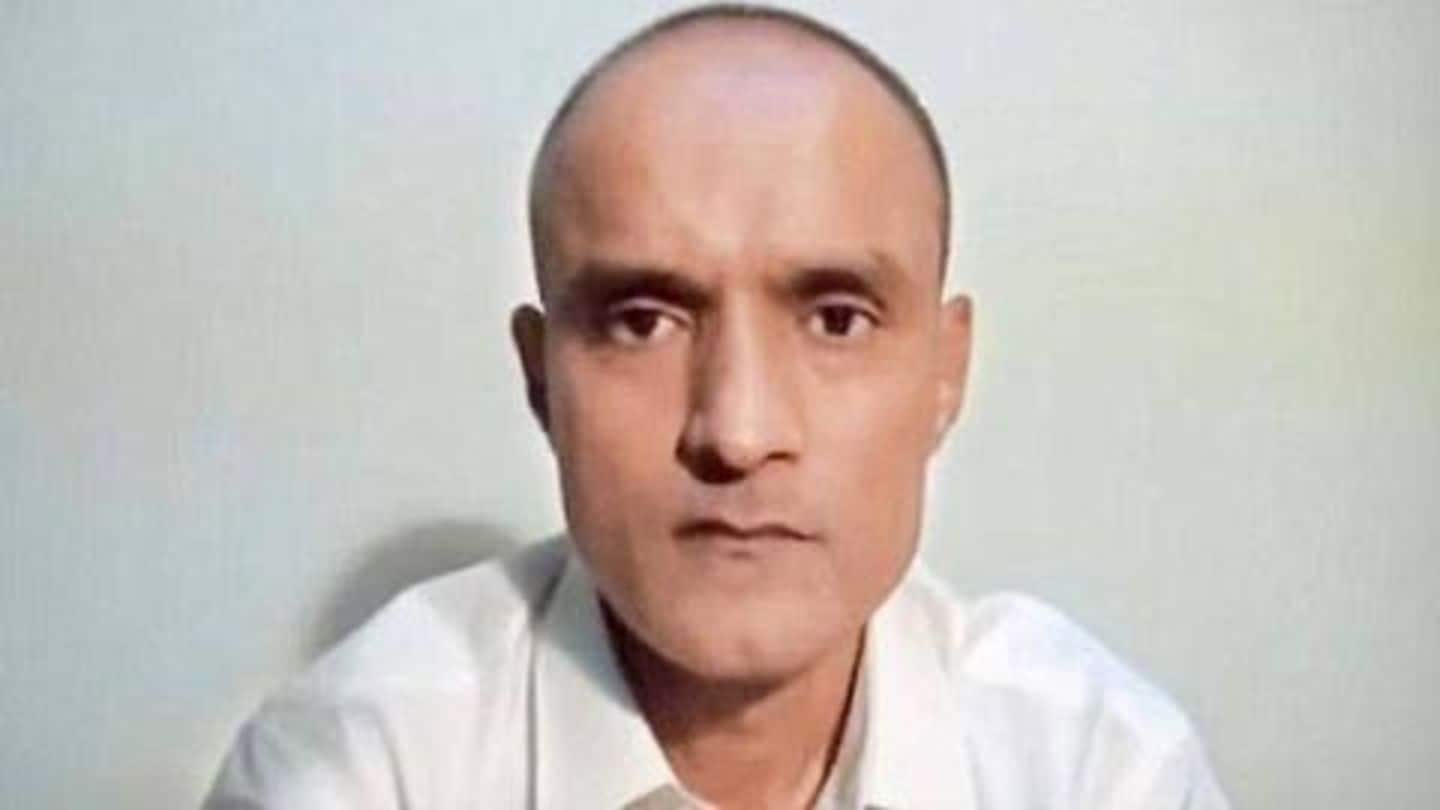
ICJ begins hearing Kulbhushan Jadhav case; India presents its arguments
What's the story
Amid escalating tensions between India and Pakistan over the Pulwama attack, the International Court of Justice (ICJ), on Monday, began hearing the high-profile case of former Indian Navy officer Kulbhushan Jadhav, who is facing the death penalty in Pakistan on charges of espionage. The hearing, that will have the final bearing on Jadhav's fate, will go on till February 21. Here are the details.
Arguments
Pakistan violated the Vienna Convention of 1963: Salve
Representing India and Jadhav in the case is lawyer Harish Salve. Salve began his arguments in the ICJ stating that Pakistan had violated the provisions of the Vienna Convention of 1963 by not informing India about Jadhav's 'arrest'. He added that Pakistan also violated the Vienna Convention by repeatedly denying India consular access to Jadhav.
Quote
Pakistan ignored 13 reminders for consular access: Salve
"13 reminders were sent to Pakistan for consular access. India has no information of what happened to Jadhav in Pakistan. Pakistan did not honor bilateral treaties," said Salve.
Propaganda
No details about Jadhav's trial; Pakistan used case for propaganda
The senior lawyer further argued that Pakistan had failed to divulge the circumstances under which Jadhav had been arrested, and also the specific offenses for which the former Navy officer had been handed a death sentence. He also alleged that Pakistan had sought evidence against Jadhav after convicting him, adding that Islamabad had used the case as a means of "propaganda".
Quote
Jadhav was not even given a lawyer: Salve
"Even the date of Kulbhushan Jadhav's arrest is not known, he was not even given a lawyer," said Salve, emphasizing the lack of transparency in the closed door trial of Jadhav that had taken place in a Pakistan military court.
Farcical
Jadhav's trial was "farcical" and based on "malicious propaganda"
Salve continued his attack against Pakistan over the trial of Jadhav, saying that the military court trial had failed to live up to the minimum standards of due process. He further said the trial was "farcical", and based on "malicious propaganda" wherein a doctored video had been produced as evidence against Jadhav. Salve added that the trial should be declared "unlawful", all things considered.
Quote
India also dismayed at Jadhav's meeting with family: Salve
"Pakistan offered to allow Kulbhushan Jadhav's family to visit him, the terms were agreed and the meeting was held on December 25, 2017. India was dismayed at the manner the meeting with Jadhav's family was conducted and wrote a letter on December 27 marking its protest," said Salve.
Conclusion
India wants ICJ to restrain Pakistan from executing Jadhav
Concluding his argument, Salve urged the ICJ to restrain Pakistan from carrying out the death sentence as it had been awarded in violation of Article 36 of the Vienna Convention. After India presented its argument, the hearing was adjourned for the day. It will resume tomorrow, and Pakistan, represented by Attorney General Anwar Mansoor, will present its argument.
Backstory
Backstory: Jadhav has been in Pakistan custody since March 2016
Jadhav had been captured by Pakistani forces from the unstable Balochistan province in March 2016. Subsequently, he was put on trial, and in April 2017, a military court in Pakistan handed Jadhav the death penalty on charges of "espionage, sabotage, and terrorism". India, however, moved the ICJ, which restrained Pakistan from executing Jadhav till the adjudication of the case.